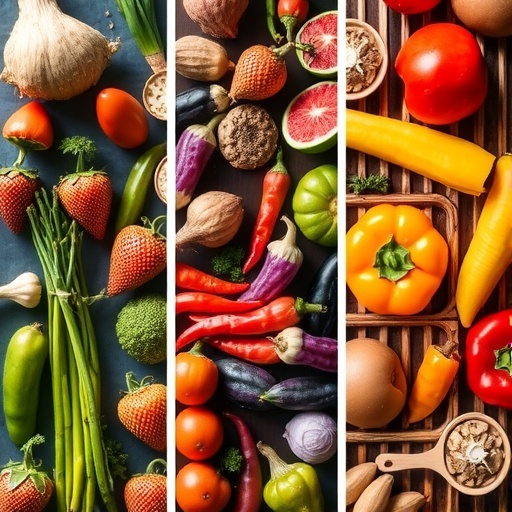A high-fat, low-fiber Western-style diet (WD) has long been implicated in altering gut microbiome composition, but the mechanisms linking diet, microbiota resilience, and host health remain incompletely understood. The gut microbiome, a complex ecosystem of trillions of microorganisms, performs critical metabolic and immunological functions essential for maintaining host homeostasis. However, modern dietary patterns characterized by excessive fat intake and minimal dietary fiber have been shown to induce substantial dysbiosis, reducing both taxonomic diversity and metabolic versatility within the microbial community. This dietary disruption is not merely an academic concern—it correlates with increased susceptibility to metabolic disorders, immune dysfunction, and a broad spectrum of systemic diseases.
A new and compelling study published in Nature in 2025 by Kennedy et al. elucidates the intricate interplay between a Western-style diet and microbiome recovery dynamics following antibiotic perturbation in mice. Antibiotics, while lifesaving, profoundly disturb gut microbial communities, often leading to prolonged dysbiosis with unclear consequences for host health. This investigation specifically contrasts microbiome recuperation trajectories between mice consuming either a traditional regular chow (RC) diet or the WD, revealing profound divergence in both speed and functional restoration of the microbiota.
Fundamentally, the research highlights that mice maintained on regular chow experience a rapid and orderly succession of microbial populations after antibiotic exposure, effectively restoring both taxonomic balance and metabolic capacity. This successional recovery is underpinned by syntrophic cross-feeding interactions, where microbial taxa cooperate by exchanging metabolic byproducts, fostering a resilient and functionally diverse ecosystem. In stark contrast, mice fed the WD exhibit a stalled recovery dominated by a single taxon that monopolizes available nutrient resources and fails to support the emergence of syntrophic networks, resulting in prolonged dysbiosis.
Delving into the metabolic underpinnings, the authors employed sophisticated metabolic modeling to dissect community interactions post-antibiotic treatment. Findings suggest that the RC diet fosters a nutrient landscape conducive to cooperative metabolic exchanges—these cross-feeding relationships enhance microbial diversity and functional redundancy, buffering the community against perturbations. Conversely, the WD appears to create a nutrient milieu that favors opportunistic expansion of select microbes capable of rapidly exploiting energy-dense substrates, yet these dominant strains do not release metabolic byproducts that could sustain syntrophic partners, effectively undermining community resilience.
Importantly, the study moves beyond correlative observations to experimentally test whether dietary manipulation or microbial transplantation better facilitates microbiome restoration. Through intervention experiments, Kennedy et al. demonstrate that adjusting the dietary environment alone is both necessary and sufficient to promote rapid and robust microbial recovery post-antibiotics. In contrast, transplantation of microbiota—such as fecal microbiota transplant (FMT), a clinical therapy gaining traction for treating dysbiosis—fails to yield significant benefits without an appropriate dietary substrate environment.
This nuanced insight critically challenges the prevailing enthusiasm surrounding FMT as a standalone solution for microbiome perturbations. While FMT has shown efficacy in specific contexts like recurrent Clostridioides difficile infection, its generalized application may be premature or even ineffective if the host’s dietary context remains unfriendly to microbial recolonization. The data advocate for a paradigm shift emphasizing targeted dietary interventions as an essential prerequisite or alternative to microbial transplant therapies, promising a safer and more natural approach to restoring gut health.
Beyond microbiome compositional recovery, the consequences of prolonged dysbiosis under WD are strikingly consequential for host health. Mice maintained on the WD post-antibiotic treatment display heightened susceptibility to enteric pathogens, exemplified by increased vulnerability to Salmonella enterica serovar Typhimurium infection. This finding suggests that diet-induced impairment of microbiome resilience not only disrupts microbial ecology but also compromises the host’s innate defense mechanisms, with potential implications for infectious disease susceptibility in humans consuming Westernized diets.
The study’s comprehensive multi-omic approach—combining taxonomic profiling, metabolic modeling, and functional assays—provides a mechanistic framework to understand how diet shapes microbial community dynamics and host-pathogen interactions after antibiotic insult. It also underscores the critical role of microbial ecology in determining the outcome of therapeutic interventions aimed at microbiome restoration.
In the broader context of metabolic and immune health, these findings reinforce the growing recognition that dietary patterns drastically influence the gut microbiome’s structure and function. Diet emerges not only as a modifiable lifestyle factor but as a fundamental ecological driver that can either promote resilience or precipitate vulnerability to disease. The implications extend beyond antibiotic recovery, suggesting that sustained dietary choices can have long-lasting impacts on microbial ecology and, consequently, host physiology.
Kennedy et al.’s work heralds a new era in microbiome science that champions ecosystem dynamics and metabolic interdependencies within microbial communities. It also serves as a clarion call for clinicians and researchers to carefully evaluate the efficacy of microbiome-targeted therapies within the complex context of host diet. Personalized nutrition and targeted dietary interventions may soon become integral components of managing dysbiosis and related disorders, complementing or even supplanting microbial transplants in certain settings.
Moreover, the research invites future exploration into the specific dietary components and metabolites that underpin microbiome resilience. Identifying key nutrients or fibers that promote syntrophic interactions could pave the way for designing precision diets tailored to optimize microbial community recovery and host health. Such interventions hold promise not only for post-antibiotic care but also for broader strategies aimed at preventing microbiome-related chronic diseases.
In summary, this landmark study decisively demonstrates that diet, particularly one rich in diverse and accessible substrates supporting cooperative microbial metabolism, is paramount in orchestrating gut microbiome recovery after antibiotic perturbation. It overturns simplistic narratives that posit microbial transplant as the silver bullet for dysbiosis and instead elevates nutritional ecology as a foundational pillar in microbiome therapeutics. As Western-style diets continue to dominate globally, understanding and manipulating diet-microbiome-host interactions will be critical to safeguarding health in the coming decades.
Subject of Research: Microbiome recovery and resilience following antibiotic treatment; influence of Western-style diet versus regular chow on gut microbial composition, function, and pathogen susceptibility in mice.
Article Title: Diet outperforms microbial transplant to drive microbiome recovery in mice.
Article References:
Kennedy, M.S., Freiburger, A., Cooper, M. et al. Diet outperforms microbial transplant to drive microbiome recovery in mice. Nature (2025). https://doi.org/10.1038/s41586-025-08937-9
Image Credits: AI Generated




